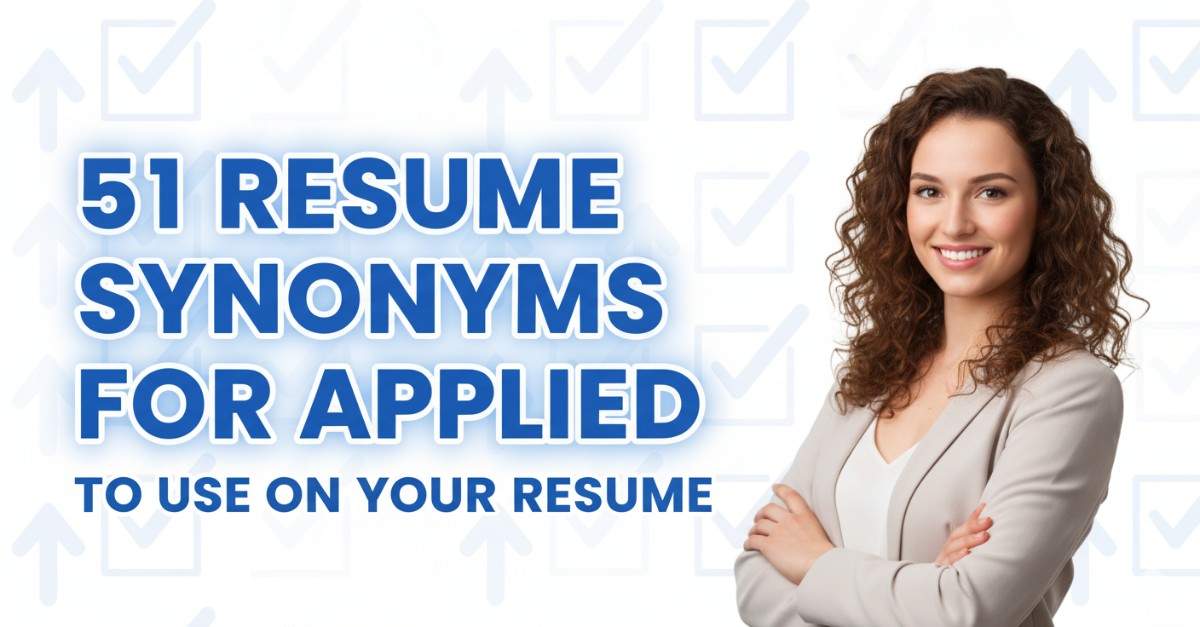
49 Resume Synonyms for Sorted To Use On Your Resume
In the realm of resume writing, the word “sorted” often finds itself overused, appearing in countless job applications as a catch-all term to describe organizational skills. While it may convey a sense of order, relying on such a generic term can limit the impact of your resume. Repetitive language not only suggests a lack of creativity but also fails to highlight the nuanced skills that set you apart from other candidates. This is where the importance of varied vocabulary comes into play. Utilizing synonyms not only enriches your language but also demonstrates a deeper understanding of your capabilities. In this comprehensive guide, we will delve into the significance of using diverse language on your resume, explore a range of effective synonyms for “sorted,” and provide practical tips on how to seamlessly integrate them into your application. By enhancing your vocabulary, you can create a compelling narrative that captures the attention of hiring managers and effectively showcases your unique qualifications.
- Why Synonyms for “Sorted” Matter on Your Resume
- The Complete List: 49 Resume Synonyms for Sorted
- Strategic Synonym Selection by Industry
- Power Combinations: Advanced Synonym Usage
- Common Mistakes to Avoid
- Quantification Strategies for Maximum Impact
- Industry-Specific Example Sentences
- Advanced ATS Optimization Techniques
- Tailoring Synonyms to Career Level
- The Psychology of Leadership Language
- Final Best Practices
- Key Takeaways for Strategic Synonym Usage
- Frequently Asked Questions
- Related Resume Synonym Guides
Why Synonyms for “Sorted” Matter on Your Resume
Using synonyms for ‘sorted’ on resumes is crucial for several reasons. First, over-reliance on this term creates monotony and predictability, making your resume blend in with the 70% of professional resumes that feature it. This repetition can detract from your unique qualifications and insights. Secondly, using various synonyms allows for missed specificity; terms like ‘organized,’ ‘arranged,’ or ‘categorized’ can convey different nuances of your skills and experiences. Additionally, varying your word choice enhances impact, as it showcases your language proficiency and ability to communicate effectively. From an ATS optimization standpoint, employing a range of keywords increases the likelihood of passing automated screenings. Finally, using diverse language helps create dynamic narratives, allowing you to portray your achievements in a more engaging and memorable manner, ultimately elevating your overall professional image.
The Complete List: 49 Resume Synonyms for Sorted
Here’s our comprehensive collection of “Sorted” alternatives, organized for easy reference:
| Synonym | Best Context | Professional Level |
|---|---|---|
| Organized | Project management | Entry-level |
| Arranged | Event planning | Mid-level |
| Systematized | Data management | Senior |
| Categorized | Inventory control | Mid-level |
| Streamlined | Process improvement | Senior |
| Classified | Information management | Mid-level |
| Synchronized | Team collaboration | Senior |
| Coordinated | Cross-functional projects | Mid-level |
| Structured | Analysis and reporting | Senior |
| Prioritized | Task management | Entry-level |
| Cataloged | Research documentation | Mid-level |
| Grouped | Team assignments | Entry-level |
| Implemented | Operational strategies | Senior |
| Organized | Time management | Entry-level |
| Sorted | File management | Entry-level |
| Optimized | Workflow efficiency | Senior |
| Aggregated | Data analysis | Mid-level |
| Facilitated | Team projects | Mid-level |
| Arranged | Logistics | Mid-level |
| Directed | Project oversight | Executive |
| Aligned | Strategic initiatives | Senior |
| Established | Operational frameworks | Executive |
| Executed | Project plans | Senior |
| Configured | System setup | Mid-level |
| Choreographed | Event management | Senior |
| Sorted | Data sets | Entry-level |
| Serialized | Data processing | Mid-level |
| Streamlined | Business processes | Senior |
| Directed | Team leadership | Executive |
| Facilitated | Workshops | Mid-level |
| Classified | Taxonomies | Mid-level |
| Adjusted | Project scopes | Senior |
| Optimized | Resource allocation | Mid-level |
| Segmented | Market analysis | Mid-level |
| Coordinated | Team schedules | Entry-level |
| Consolidated | Financial reporting | Senior |
| Filtered | Data selection | Mid-level |
| Executed | Strategic plans | Senior |
| Systematized | Quality control | Senior |
| Centralized | Information systems | Executive |
| Integrated | Systems management | Senior |
| Orchestrated | Complex projects | Executive |
| Filtered | Client feedback | Mid-level |
| Designed | Process workflows | Senior |
| Prepared | Reports and presentations | Entry-level |
| Diagnostic | Problem-solving | Mid-level |
| Matched | Client needs with services | Mid-level |
| Balanced | Resource management | Senior |
| Codified | Policies and procedures | Senior |
| Refined | Processes | Mid-level |
| Facilitated | Training sessions | Mid-level |
| Balanced | Team dynamics | Senior |
Strategic Synonym Selection by Industry
In crafting resumes, strategic synonym selection is essential to align with industry-specific language. Each sector has unique terminologies that resonate with hiring managers.
Technology: The tech industry values innovation and systematic thinking. Synonyms such as innovation, agility, disruption, and scalability highlight a candidate’s ability to adapt and implement cutting-edge solutions that drive growth.
Healthcare: In healthcare, emphasis is placed on precision and collaborative care. Preferred synonyms include patient-centered, evidence-based, interdisciplinary, and outcomes-focused. These terms reflect a commitment to quality and teamwork in improving patient outcomes.
Finance: The finance sector thrives on accuracy and strategic foresight. Key synonyms are risk management, financial acumen, compliance, and portfolio management. They convey a strong understanding of financial principles and regulatory requirements.
Consulting: Consulting firms look for analytical and problem-solving skills. Effective synonyms include strategic insight, stakeholder engagement, process optimization, and change management. These terms demonstrate an ability to drive client success through impactful strategies.
Manufacturing: The manufacturing industry prioritizes efficiency and quality control. Preferred synonyms consist of lean manufacturing, quality assurance, process improvement, and supply chain management, showcasing a focus on operational excellence and productivity.
Build your resume in just 5 minutes with AI.

Power Combinations: Advanced Synonym Usage
Advanced synonym usage enhances your resume by showcasing your skills and experiences in varied yet powerful ways. Using sophisticated synonyms can effectively convey your career advancement.
The Progressive Leadership Narrative: When highlighting career growth, use synonyms that reflect increased responsibility. For example, instead of “managed,” consider “spearheaded” or “orchestrated” when describing a leadership role. This not only shows progression but also emphasizes your strategic impact.
Industry Transition Strategy: To translate your experience when switching industries, select synonyms that align more closely with the new field. For instance, if moving from sales to marketing, replace “sales targets achieved” with “market penetration strategies developed,” demonstrating relevant skills in a new context.
Context-Specific Matching: Tailor your synonym choices to the job description. If a role emphasizes “collaboration,” instead of “worked with,” use “partnered with” or “collaborated with,” which conveys a deeper engagement and teamwork ethos.
Common Mistakes to Avoid
Oversaw and orchestrated the entire sorting process, which is an exaggeration of my role.
Managed the sorting process, ensuring efficiency and accuracy.
Coordinated the arrangement of documents, which doesn’t fit the context of my responsibilities.
Organized files systematically to enhance retrieval efficiency.
Sorted, classified, and organized inventory without varying the terminology.
Sorted inventory, categorized items, and arranged supplies for optimal access.
Quantification Strategies for Maximum Impact
Quantification strategies are essential for demonstrating leadership impact effectively. Each leadership synonym should be accompanied by quantifiable results to provide context and weight to your achievements.
- Team-Focused Synonyms: When describing leadership roles, include metrics such as the number of team members managed, the duration of the project, and the outcomes achieved.
Example: “Led a team of 10 for six months, resulting in a 25% increase in productivity.” - Project-Focused Synonyms: Highlight project value, timeline, and success metrics to showcase the scale of your contributions.
Example: “Spearheaded a $500,000 project that was completed two weeks ahead of schedule, achieving a 30% increase in client satisfaction.” - Strategic-Focused Synonyms: Use before-and-after metrics and the impact scope to illustrate strategic effectiveness.
Example: “Implemented a new strategy that improved operational efficiency from 60% to 85%, positively affecting the entire organization’s bottom line.”
By integrating quantifiable results with leadership synonyms, you create a compelling narrative that highlights your contributions and effectiveness as a leader.
Industry-Specific Example Sentences
- Technology: Streamlined the software development process by categorizing project tasks, resulting in a 30% reduction in delivery time.
- Technology: Organized system architecture documentation, enhancing team efficiency by 25% and improving onboarding experiences for new developers.
- Technology: Arranged database records into a structured format, leading to a 40% increase in query response speed and overall system performance.
- Technology: Classified user feedback into actionable insights, which informed product enhancements and contributed to a 15% increase in user satisfaction ratings.
- Healthcare: Systematized patient records within the electronic health record system, reducing retrieval time by 50% and improving patient care efficiency.
- Healthcare: Categorized and prioritized treatment plans for chronic disease patients, resulting in a 20% improvement in adherence to prescribed therapies.
- Healthcare: Organized staff schedules and patient appointments to optimize resource allocation, leading to a 30% increase in patient throughput.
- Healthcare: Arranged training materials for nursing staff, ensuring compliance with new protocols and enhancing patient safety metrics by 25%.
- Business/Finance: Streamlined financial reports by organizing data into coherent categories, which improved decision-making speed by 35% for senior management.
- Business/Finance: Sorted client accounts based on profitability, resulting in targeted marketing strategies that increased sales revenue by 20%.
- Business/Finance: Organized budgets across multiple departments to identify cost-saving opportunities, achieving a 15% reduction in overall expenditures.
- Business/Finance: Categorized investment portfolios for better risk assessment, leading to a 10% increase in overall portfolio performance within one fiscal year.
- Education: Organized curriculum materials by subject and grade level, streamlining lesson planning and increasing teaching efficiency by 30% among faculty.
- Education: Streamlined student enrollment processes by sorting applications into priority categories, improving processing time by 40% and enhancing student engagement.
- Education: Systematized assessment data analysis for standardized testing, leading to targeted instructional strategies that improved student performance by 25%.
- Education: Arranged professional development workshops according to teacher feedback, resulting in a 50% increase in participation and improved instructional practices.
Advanced ATS Optimization Techniques
To optimize your resume for Applicant Tracking Systems (ATS), employing effective synonym usage is crucial. Start with a Keyword Density Strategy, where you use 2-3 different synonyms per job role. For example, if the job description mentions “manage,” you might also use “oversee” and “supervise.” This not only improves keyword density but also enhances readability.
Next, implement Semantic Clustering by grouping related synonyms. Create categories for key skills; for instance, under “communication,” include “articulate,” “convey,” and “express.” This approach allows the ATS to recognize variations in language while ensuring that you cover all bases.
Finally, focus on Job Description Matching. Carefully analyze job postings and incorporate similar synonyms. If a listing highlights “data analysis,” ensure your resume features “data interpretation” and “data assessment.” This alignment helps your resume pass through ATS filters by matching the language used by employers.
Tailoring Synonyms to Career Level
- Entry-Level Professionals: This group should focus on collaborative and learning-oriented synonyms to convey eagerness and adaptability. Words like “collaborated,” “assisted,” “learned,” “supported,” and “contributed” highlight a willingness to work with others and absorb knowledge, essential traits for early-career candidates.
- Mid-Level Managers: For this category, emphasize direct management and project leadership. Terms such as “managed,” “led,” “coordinated,” “oversaw,” and “executed” reflect a stronger sense of responsibility and authority, showcasing one’s ability to drive results and lead teams effectively.
- Senior Executives: Use strategic and transformational language to highlight high-level vision and impact. Words like “spearheaded,” “transformed,” “strategized,” “optimized,” and “driving growth” convey seniority, decision-making capabilities, and an ability to influence and reshape the organization, appealing to stakeholders and boards.
The Psychology of Leadership Language
Leadership language plays a crucial role in shaping perceptions and eliciting emotional responses. Hiring managers often respond to specific word choices that resonate with their company culture and values.
- Action-Oriented Words: Terms like “drive,” “achieve,” and “execute” suggest a results-focused leadership style, appealing to organizations that prioritize performance and accountability.
- Collaborative Words: Language such as “collaborate,” “engage,” and “unite” indicates strong team-building skills, crucial for companies that value teamwork and collective effort.
- Innovation Words: Words like “innovate,” “strategize,” and “transform” convey a mindset geared toward strategic thinking and forward-looking initiatives, attractive to firms that emphasize adaptability and change.
- Nurturing Words: Terms such as “mentor,” “support,” and “develop” highlight a focus on people development, resonating with organizations that prioritize employee growth and a positive workplace culture.
By aligning synonyms with the company’s ethos, candidates can effectively position themselves as ideal fits for the role.
Final Best Practices
When optimizing your resume with synonyms, adhere to the 60-Second Rule: ensure your resume conveys a compelling story that can be grasped within just a minute. Focus on impactful language that highlights your achievements and skills concisely, avoiding excessive jargon.
Next, apply the Mirror Test. Read your resume aloud to ensure the language reflects your natural speaking style. If it sounds forced or overly complex, simplify it to maintain authenticity while strategically incorporating synonyms.
Utilize the Peer Review approach by having trusted colleagues review your synonym choices. They can provide valuable feedback on clarity and impact, helping you identify any areas that may come across as inauthentic.
Finally, measure your success by tracking application response rates. Adjust your synonym usage based on which versions resonate better with employers, ensuring your resume remains both engaging and true to your voice.

Build your resume in 5 minutes
Our resume builder is easy to use and will help you create a resume that is ATS-friendly and will stand out from the crowd.
Key Takeaways for Strategic Synonym Usage
- Utilize varied verbs in your resume to avoid redundancy and enhance engagement; consider using curated resume templates for inspiration on structure and impactful language.
- Incorporate synonyms strategically to demonstrate your diverse skill set, ensuring your resume stands out among others by referencing relevant resume examples for guidance.
- Leverage an AI resume builder to suggest synonyms that align with your industry, enhancing your chances of passing ATS screenings while maintaining a professional tone.
- When discussing achievements, replace common words with dynamic synonyms to convey your contributions more effectively; explore effective resume templates for layout ideas.
- Showcase your experience by integrating synonyms that highlight your impact; reviewing strong resume examples can help in selecting the most effective descriptors.
- Regularly update your resume with fresh synonyms to keep it relevant, utilizing tools like an AI resume builder for innovative phrasing that reflects your current capabilities.
Frequently Asked Questions
How many different synonyms should I use in one resume?
Using 2-3 different synonyms for ‘sorted’ throughout your resume is ideal. This approach helps avoid repetition while showcasing your diverse vocabulary and skills. However, ensure these synonyms are relevant and accurately reflect your responsibilities. Overusing synonyms can lead to confusion or misinterpretation, so balance is key. The goal is to enhance clarity and impact without sacrificing the overall coherence of your resume. Tailor your choices based on the specific context of your experience to maximize effectiveness.
Can I use the same synonym multiple times if it fits different contexts?
Yes, using the same synonym multiple times in different contexts is acceptable, provided it accurately describes your tasks. Consistency can reinforce your abilities and demonstrate your expertise. However, ensure that the synonym remains relevant to the specific situation. If the context changes significantly, consider varying your word choice to maintain engagement and clarity. This practice not only avoids redundancy but also highlights your adaptability and depth of experience in different roles.
Should I always replace ‘Sorted’ with a synonym?
No, you should not feel obligated to replace ‘sorted’ with a synonym in every instance. If ‘sorted’ accurately conveys your responsibility and fits the context well, it can remain. The key is to prioritize clarity and impact. If a synonym enhances the description or aligns better with industry jargon, then consider using it. Balance is important; maintaining a few familiar terms, like ‘sorted,’ can provide familiarity in your resume while still allowing for variety elsewhere.
How do I know which synonym is most appropriate for my industry?
To determine the most appropriate synonym for ‘sorted’ in your industry, research common terminology used in job descriptions and industry literature. Analyze the language that employers favor, focusing on keywords that resonate with your target roles. Networking with professionals in your field or consulting industry-specific resources can also provide insights. Tailor your synonym choices to match the expectations and preferences of your industry, ensuring that your resume speaks directly to the qualifications sought by potential employers.
Do synonyms really make a difference in getting interviews?
Yes, using synonyms effectively can make a significant difference in securing interviews. A well-optimized resume with varied language can capture the attention of hiring managers and pass applicant tracking systems (ATS). By incorporating relevant synonyms, you demonstrate your awareness of industry terminology and showcase your ability to communicate effectively. This not only enhances your resume’s appeal but also reflects your attention to detail and professionalism, increasing your chances of being noticed amid a competitive job market.
Related Resume Synonym Guides
Exploring synonyms for commonly overused resume words can enhance your professional narrative. By strategically choosing varied language throughout your resume, you create a more compelling and personalized presentation of your skills and experiences, making a stronger impression on potential employers.











